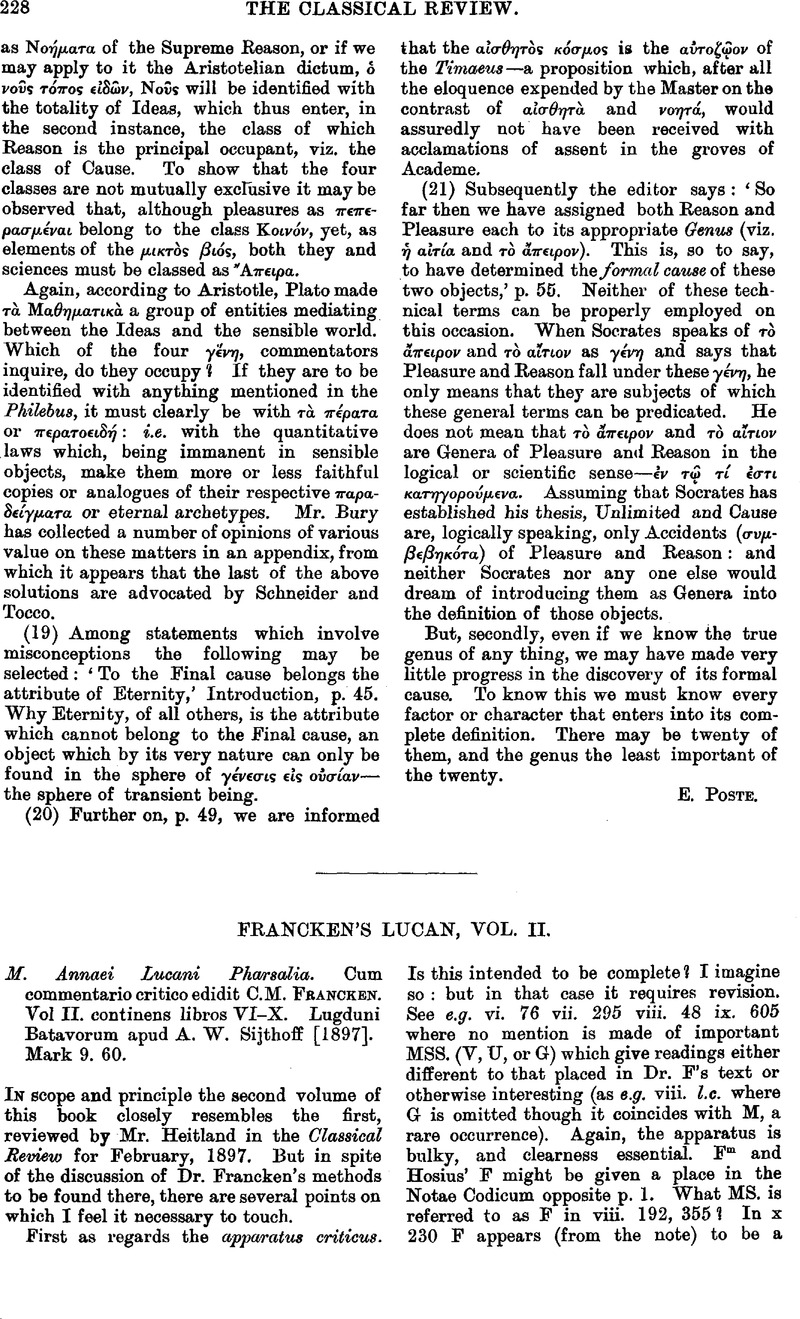No CrossRef data available.
Published online by Cambridge University Press: 27 October 2009

page 229 note 1 In vii. 462, 519 it seems to be a misprint for C, in vii. 633 it stands for Servius! In other places one must await Dr. Francken's explanation.
page 229 note 2 Similar displacements vii. 383, 868; ix. 651.
page 229 note 3 Dr. Francken's views may be gathered from his words in Class. Rev. 1897, p. 181: ‘Stht. de V. fallitur, ut cuiuis potest acoidere: in quo facile est tragoedias excitare, praesertim si ipse codices non couferas.’
page 229 note 4 In all these passages there is much doubt as to which reading should be adopted.
page 229 note 5 I never believed Aetnaeis could be right, for Aetna comes soon after and the Roman poets loved variety in proper names. Notum need not be taken strictly, and it now appears that A has Hennaeis.
page 229 note 6 In vi. 360 if emendation is necessary, read abdueta with Sen. N. Q. vi. 25 (both passages refer to the draining of Thessaly).
page 230 note 1 non illic is read by all good MSS.: see the corrigenda in Francken.
page 230 note 2 quis transmittat only AC (see the corrigenda in Francken).
page 230 note 3 Surely stares in 1. 43 does refer to Cornelia
page 231 note 1 The note on 567 is strange: premit surely = ‘ close’—a friendly act, without any idea of ‘ maims nocitura.’
page 231 note 2 571–3 are bracketed, but surely these lines do form the apodosis to the preceding ones and quicumque = quiuis is rare at beginning of clauses (V. Fl. viii. 4 is quite exceptional).